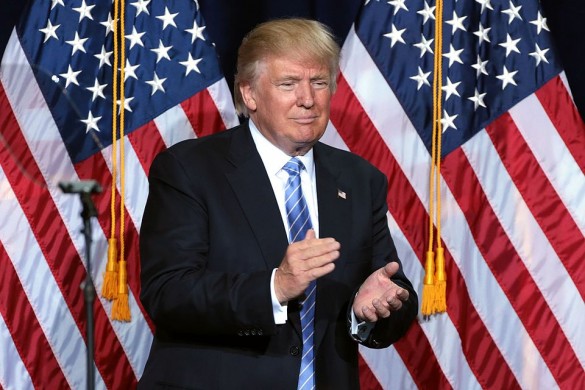Concerns are mounting among U.S. lawmakers over the potential risks posed by President Trump’s involvement in cryptocurrency and Elon Musk’s growing influence. They argue that these factors could destabilize the financial system, undermine regulatory oversight, and diminish public confidence in government accountability. As the crypto landscape evolves, policymakers are urging caution to prevent unintended consequences that could ripple through the economy.

US Lawmakers Warn of Trump’s Crypto Ties and Musk’s Expanding Influence
A group of U.S. lawmakers has raised alarms over President Donald Trump’s deepening involvement in cryptocurrency and the increasing power of Tesla CEO Elon Musk. In a letter sent to White House Chief of Staff Susie Wiles on March 17, Senators Elizabeth Warren (D-MA), Richard Blumenthal (D-CT), Jeffrey A. Merkley (D-OR), Chris Van Hollen (D-MD), and Representative Jamie Raskin (D-MD) expressed concerns about the potential risks posed by Trump’s financial ties to the crypto industry.
The lawmakers pointed out that Trump’s stance on cryptocurrency had dramatically shifted, noting that he had once dismissed it as a “scam” but was now actively building what they described as a “crypto army.” They referenced the TRUMP meme coin, claiming that it had generated nearly $100 million in trading fees for Trump’s family and business partners within just two weeks of its launch. They also highlighted his involvement with World Liberty Financial, warning that such ventures could pose ethical and financial risks.
Beyond Trump’s personal dealings, the letter also raised concerns about potential foreign influence in his crypto ventures. The lawmakers cautioned that Commerce Secretary Howard Lutnick’s financial involvement in cryptocurrency could lead to a weakened regulatory environment. They warned that both Trump and Lutnick, whose firm is a major crypto investor, might use their positions to discourage financial regulation, even as unregulated crypto markets showed signs of instability that could result in another financial crisis.
The lawmakers further criticized Musk’s growing influence in the federal government, arguing that Trump’s newly created Department of Government Efficiency had only amplified the billionaire’s power. They claimed that Trump had effectively handed over authority to Musk, who stood to gain financially from the department’s efforts to overhaul the executive branch.
Concerns were also raised regarding regulatory oversight, with the lawmakers alleging that at least 11 federal agencies with ongoing investigations or enforcement actions against Musk’s businesses had been significantly weakened. They cited reports suggesting that the Federal Aviation Administration (FAA) was considering canceling a $2.4 billion contract with Verizon in favor of awarding the deal to Musk’s Starlink, further fueling suspicions of self-enrichment at the expense of regulatory integrity.

Source: Wikipedia commons
Calling for immediate action, the lawmakers stressed that these financial conflicts of interest carried real-world consequences for the American public. They urged Trump to divest from his private business interests, following the precedent set by previous presidents, and insisted that Musk should be required to publicly disclose his financial records to clarify any potential conflicts of interest.
Concluding their letter, they argued that it was still possible for Trump to prioritize national interests over personal financial gain. They requested a response from the White House by March 31, outlining how the administration intended to address these ethical concerns.
Meanwhile, Trump and Musk’s supporters have pushed back against these criticisms, arguing that their approach to cryptocurrency and deregulation fosters innovation, stimulates economic growth, and reduces excessive government control. Trump’s embrace of digital assets has been welcomed by crypto advocates, who view it as a step toward greater financial independence and decentralized markets. Similarly, Musk’s influence over federal agencies is seen by his supporters as a necessary challenge to bureaucratic inefficiencies, with many believing that the Department of Government Efficiency’s reforms will streamline government operations rather than dismantle them.
Learn from market wizards: Books to take your trading to the next level

 Hot Features
Hot Features












